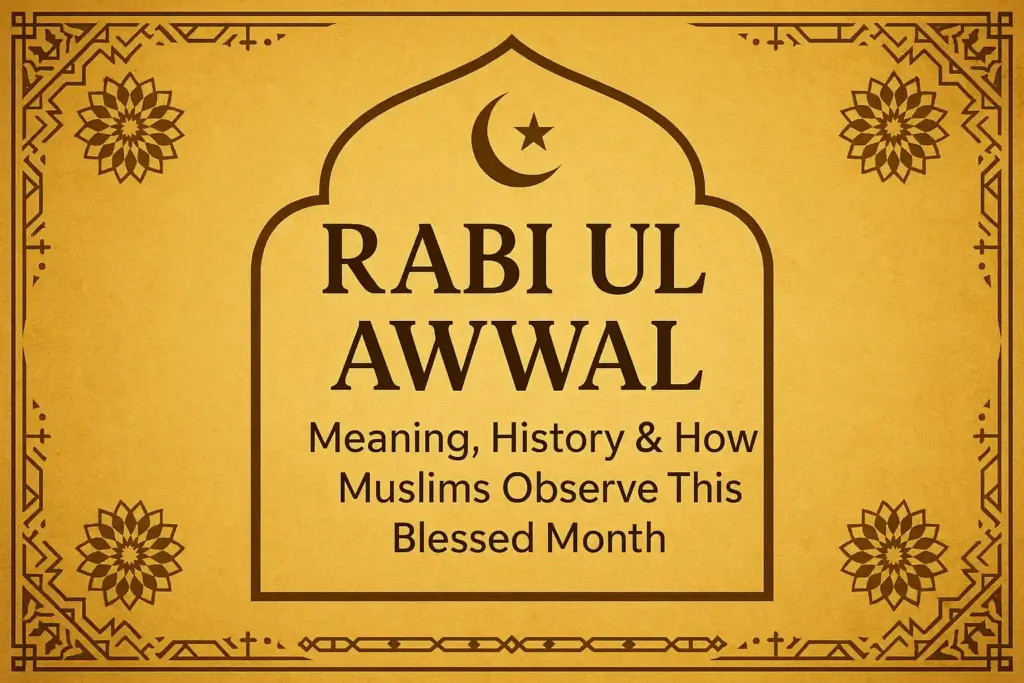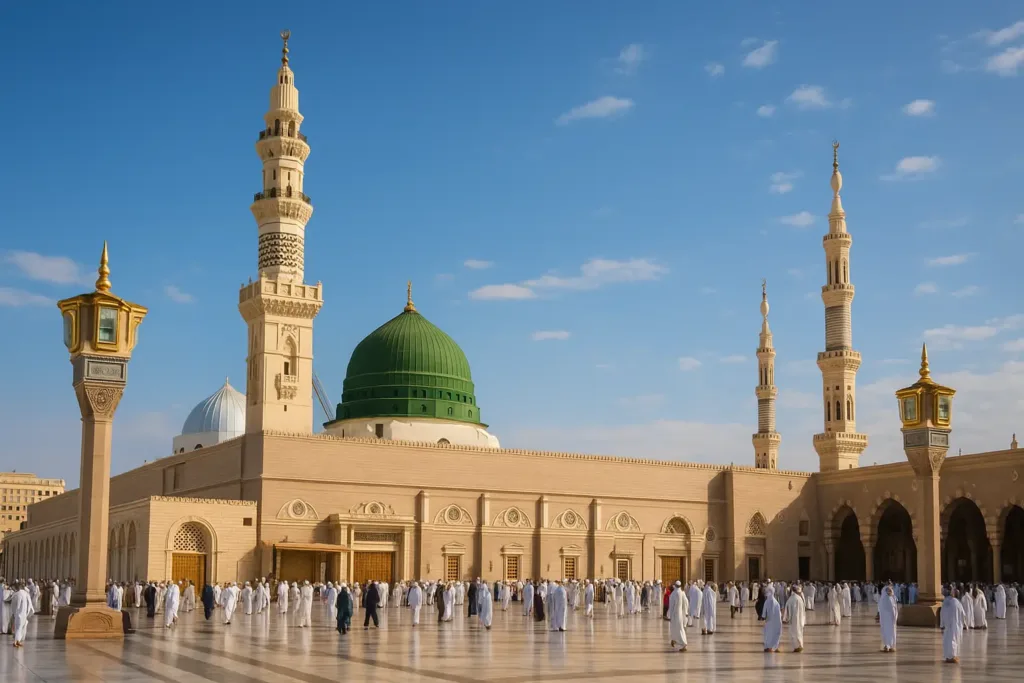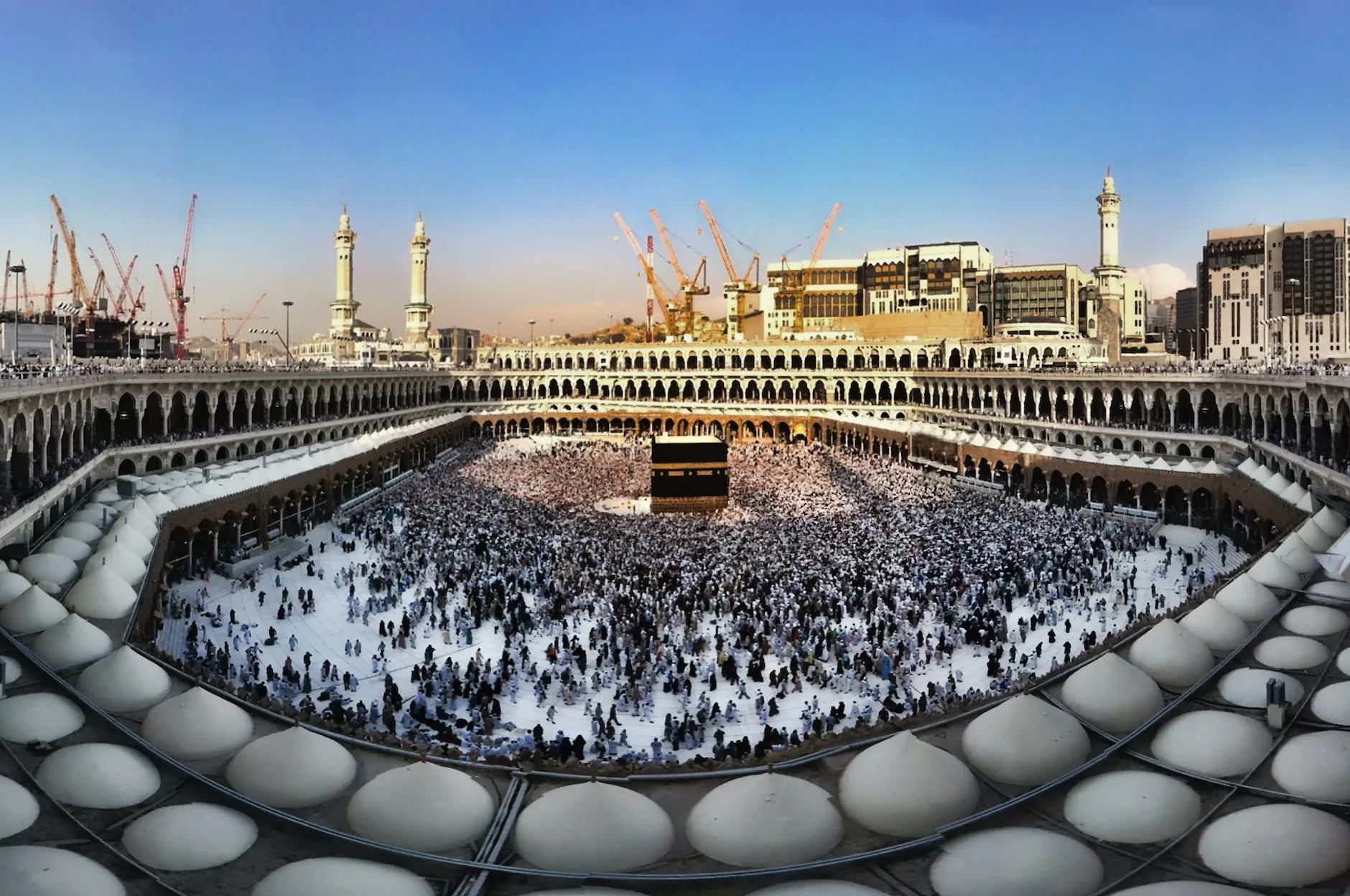1. Why Rabi ul Awwal Matters
Rabi ul Awwal is the third month of the Islamic Hijri calendar and holds a special place in the hearts of Muslims around the world. It is the month in which the beloved Prophet Muhammad ﷺ was born. His birth is considered the greatest blessing for humanity because he brought the message of Islam, guiding people from darkness to light.

For Muslims, Rabi ul Awwal is not just a historical month—it is a time for spiritual reflection, gratitude, and renewing love for the Prophet ﷺ. Many believers take this opportunity to increase their worship, learn about the Seerah (life history) of the Prophet, and practice his Sunnah.
2. Meaning and History of Rabi Al Awwal
The name Rabi’ ul Awwal literally means “the first spring” in Arabic, even though it doesn’t necessarily fall in the spring season every year due to the lunar Hijri calendar. The Islamic months are based on the moon’s sighting, which makes them shorter than the solar calendar months.
Historically, Rabi ul Awwal became significant because:
- The Prophet Muhammad ﷺ was born in this month in Makkah, in the Year of the Elephant.
- Hijrah (migration) of the Prophet from Makkah to Madinah happened around this period.
- The Prophet ﷺ passed away in Rabi’ ul Awwal at the age of 63.
These events make Rabi ul Awwal a month of both joy and reflection.

3. Major Events in Rabi ul Awwal
Here are the most notable Islamic events associated with Rabi ul Awwal:
- Birth of Prophet Muhammad ﷺ – Occurred on Monday, 12th Rabi ul Awwal according to many scholars.
- Hijrah to Madinah – The Prophet’s arrival in Madinah marked a new chapter for Muslims.
- Death of the Prophet ﷺ – Also on 12th Rabi ul Awwal, which reminds Muslims that life in this world is temporary.
- Early Islamic Battles – Some important battles took place during this month in Islamic history.
4. How Muslims Observe Rabi Al Awwal
While Islamic scholars emphasize that love for the Prophet ﷺ should be expressed all year, Rabi ul Awwal often inspires Muslims to increase good deeds.
a. Daily Worship
- Reciting more Qur’an.
- Sending frequent salawat (blessings) upon the Prophet ﷺ.
- Performing extra voluntary prayers.
b. Charity and Helping Others
Many Muslims give sadaqah (charity) during this month, helping the poor, feeding the hungry, and supporting community projects.
c. Learning the Seerah
Mosques and Islamic centers hold gatherings to teach about the life of the Prophet ﷺ, his kindness, justice, and leadership.
5. Celebrations & Practices in Different Communities
The way Muslims mark Rabi ul Awwal varies across cultures:
- In South Asia, some communities hold Mawlid gatherings where they recite poetry and narrations about the Prophet’s life.
- In Middle Eastern countries, special Islamic lectures and events are held.
- In Turkey, lights decorate mosques, and Qur’an recitations are broadcasted.
- Some Muslims prefer quiet remembrance through worship and reflection, avoiding large celebrations.
It’s important to remember that while expressing love for the Prophet ﷺ is encouraged, Islam teaches us to avoid practices that have no basis in the Sunnah.
6. Prayers, Duas, and Fasting in Rabi’ ul Awwal
There is no special prayer or fasting specifically prescribed in Rabi ul Awwal except the regular Sunnah and voluntary acts. However, Muslims are encouraged to:
- Pray Tahajjud at night.
- Fast on Mondays and Thursdays as the Prophet ﷺ used to do.
- Make duas for forgiveness, guidance, and unity among Muslims.
7. Common Misconceptions
- Myth: Celebrating the Prophet’s birthday with specific rituals is mandatory.
Truth: Islam teaches that we show love for the Prophet ﷺ by following his Sunnah daily. - Myth: Certain foods or colors must be used in Rabi ul Awwal.
Truth: There is no authentic evidence for this in the Qur’an or Hadith.
8. Visiting Makkah and Madinah During Rabi ul Awwal

Many Muslims choose to perform Umrah during this month. Visiting Masjid al-Haram in Makkah and Masjid an-Nabawi in Madinah allows believers to connect deeply with Islamic history and the Prophet’s legacy.
In Madinah, pilgrims visit the Rawdah, a blessed area in the Prophet’s Mosque, and send salam to the Prophet ﷺ.
9. How to Spiritually Benefit from Rabi’ ul Awwal
Here are some ways you can make the most of this blessed month:
- Read a book on the Seerah.
- Memorize new Hadith about the Prophet ﷺ.
- Increase dhikr (remembrance of Allah) daily.
- Strengthen family bonds through kindness and good manners.
- Share Islamic knowledge on social media to spread positivity.
10. Conclusion & Reflection
Rabi ul Awwal is a month that brings both joy and a gentle reminder. Joy—because it is the month of the Prophet’s birth, the man who changed history through mercy, patience, and faith. Reflection—because it also marks his departure from this world, reminding us that life is short and should be filled with good deeds.
For Muslims, the best way to honor Rabi ul Awwal is to live by the teachings of Prophet Muhammad ﷺ every single day—not only in this month, but throughout the year.
May Allah allow us to increase our love for the Prophet ﷺ, follow his Sunnah sincerely, and be united as an ummah.
FAQ
1. What is the significance of Rabi ul Awwal in Islam?
Rabi ul Awwal is the third month of the Islamic calendar, most known for the birth of Prophet Muhammad ﷺ on the 12th of Rabi ul Awwal. It is a time to remember his life, teachings, and mercy to mankind.
2. Is there any special prayer or fast prescribed in Rabi ul Awwal?
There is no specific prayer (namaz) or fasting (roza) that is obligatory in Rabi ul Awwal according to authentic Islamic sources. However, Muslims are encouraged to increase voluntary prayers, Quran recitation, dhikr (remembrance of Allah), and acts of charity.
3. How do Muslims around the world observe Rabi ul Awwal?
Practices vary. Some communities hold gatherings (Mehfil) and speeches about the Prophet’s ﷺ life. In places like South Asia and Africa, Milad-un-Nabi processions are organized. Others focus on private worship and learning Seerah (Prophet’s biography).
4. Can Muslims travel to Makkah or Madinah especially for Rabi ul Awwal?
Yes, many Muslims visit Makkah and Madinah during Rabi ul Awwal to perform Umrah and spend time in the Prophet’s Mosque. However, this is optional and not a Sharia requirement.
5. Is celebrating Rabi ul Awwal compulsory in Islam?
No, Islam does not make celebrating Rabi ul Awwal compulsory. It is more about honoring the Prophet ﷺ through learning, practicing his Sunnah, and spreading kindness, rather than specific rituals.
Refference :


